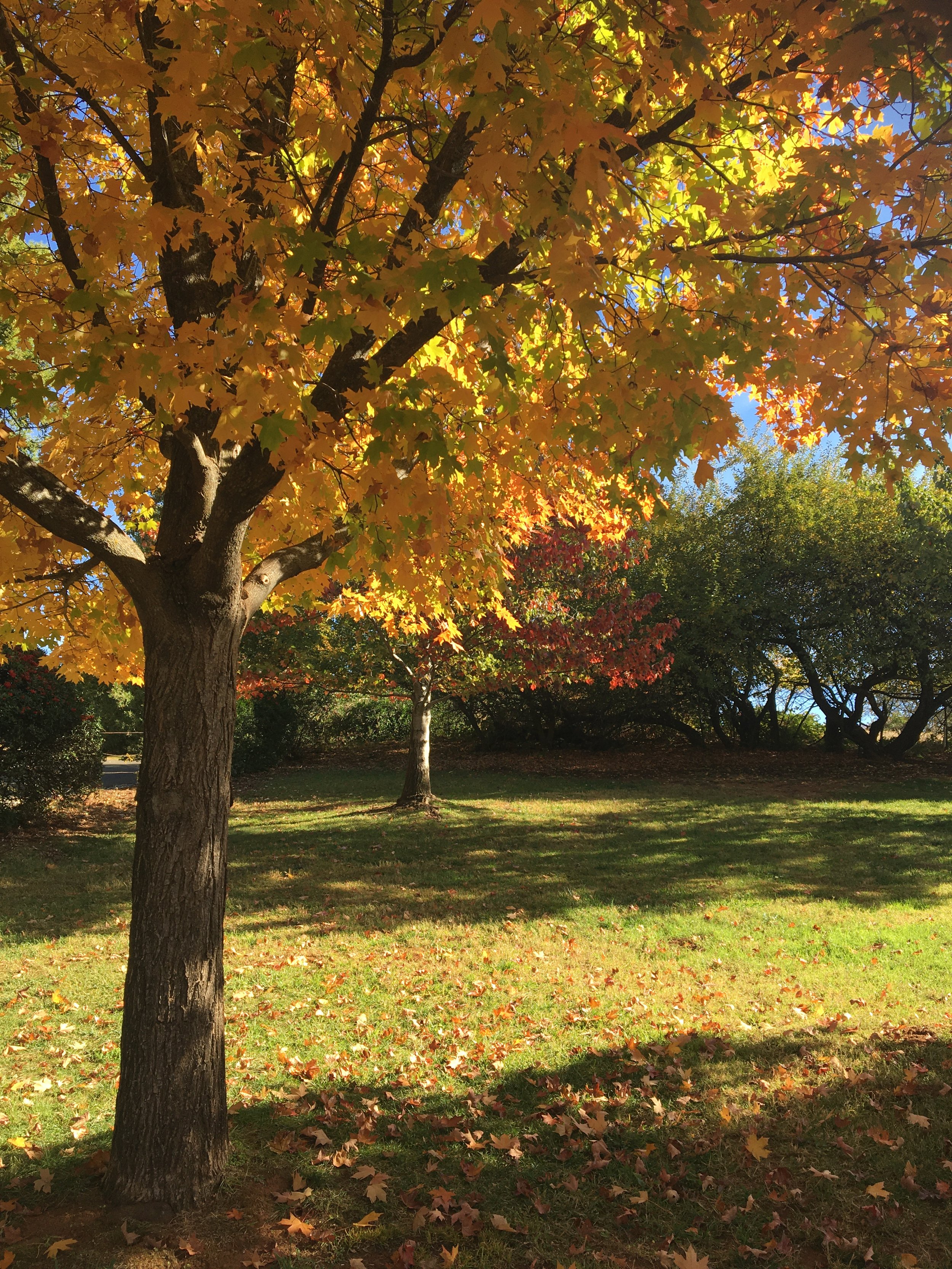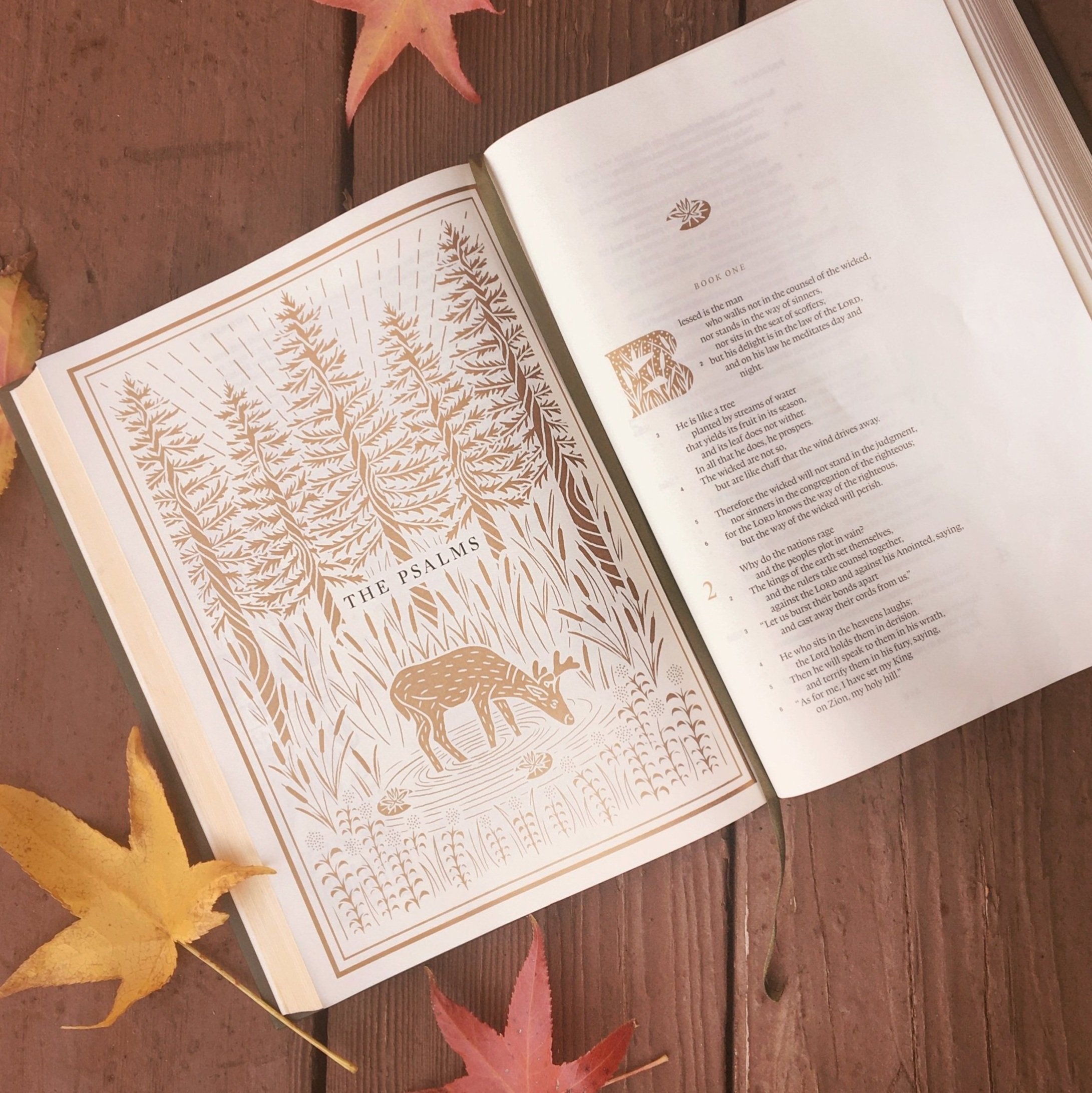
Four Gifts of Ignatian Spirituality
Rootedness in God's love, finding God in all things, knowing Jesus more deeply, and a practical, integrated spirituality

Spiritual Friendship
If ever there has been a time to be grateful for friendships, it’s been in the last five months.
I’ve appreciated all the humorous memes and posts about how 2020 has been one giant dumpster fire of a year, but in all seriousness, these few months have placed our souls, emotions, and closest relationships into a giant pressure cooker.
Still, with so much pressing in and trying to divide us and tear us apart from one another, I’ve found so much gratitude for the deep friendships in my life. Even as we’ve been separated and isolated during lockdowns and quarantines, we've found creative ways to spend time together and maintain connection, and that’s been so beautiful to me. These friends have been messengers of hope, celebrators in our joy as we expect our first child, fellow mourners and lamenters as we all adjust and struggle through so much change and loss. Oh, how we’ve needed them!
So today, I want to invite you to consider how spiritual friendships breathe life into our journeys with Jesus, and how to develop these friendships in your own life.

Lament as Praise
Grief has been a topic gaining significant traction this year, and for good reason. We’ve faced constant change in every sphere of our lives, and we’ve been hit with a tidal wave of things to grieve, be they big or small, concrete or more difficult to define and articulate. When the world takes a much different--and in many ways a traumatic, tragic, disrupting--direction than we expected, how are we to respond? How do we cry out to God when we feel powerless?
I have found myself grieving the loss of normalcy and a sense of certainty, and there’s a heavy feeling of powerlessness that follows. I may not have actually possessed any more control before, but it’s all the more apparent how very little control I actually do have. And while it’s a good thing to recognize that only God is in control, there is still a grieving process in shedding the false notion of my own sense of control.
And then, things that we have already been grieving may be intensified in this season.

Praying Scripture: The Time-Tested Practice of Lectio Divina
The Psalmist declared to have hidden the word in his heart, and that it was “sweeter than honey” (Ps. 119:11, 103), and Paul encouraged us in Colossians 3:16 to “let the word of Christ dwell in you richly.” I’ve never found a practice of reading scripture that invites me to do the same quite like lectio divina!
I was first introduced to this ancient practice while on staff with Young Life, when Bob and Claudia Mitchell led us through it at a staff retreat a decade ago. Their love for the words of Scripture were only unmatched for their love for the God these words revealed, and I was captivated. I wanted to know the heart of Jesus the way that they did, and so began my journey with lectio divina.

How to Pray the Psalms
For some people, the Psalms are a part of scripture that have always felt like home, but for others, it takes a while to get into them. I was in the latter camp. The pathway to spiritual growth in the Psalms isn’t as clear-cut or pragmatic as places of didactic teaching, encouragement, or commands in other parts of scripture.
Donald Miller opened Blue Like Jazz with, “Sometimes you have to watch somebody love something before you can love it yourself. It is as if they are showing you the way” (pg. ix). This was my experience.

The Poetry of Praise
The Psalmist declared to have hidden the word in his heart, and that it was “sweeter than honey” (Ps. 119:11, 103), and Paul encouraged us in Colossians 3:16 to “let the word of Christ dwell in you richly.” I’ve never As I began to work on this post, I intended to write a very academic post about Psalms of praise—but I find I’m reflecting more on how the Psalms have taught me to worship. It’s easy to categorize the Psalms into individual and communal laments, individual and communal praises, etc, but truthfully, each psalm contains elements of both. Lament and praise go hand in hand. They are two sides of the same coin, in a kind of rhythm with one another, often experienced simultaneously, and they are both worshipful. They both bring glory to God.

The Earthiness and Wonder of Lament
Truthfully, this post has been in my thoughts for weeks, but the discipline to sit down and actually WRITE about lament has been lacking. I’d like to blame it on the recent power outages here in Northern California (we had FOUR of them, three of which were back-to-back, for a grand total of 9 days without power in the month of October!), or even the very busy season of life and ministry that we’re in this fall. But really, it’s because I’d rather remain distracted than acknowledge the need for lament, even in my own life. It’s so deeply personal, and all too real.
As a culture, we can be quite averse to lamenting. When someone expresses their sorrow or pain or doubt, we can be quick to offer cliche responses like, “Things will get better." "You’ll look back on this years from now and be grateful, because everything happens for a reason.” “God doesn’t give us more than we can handle.” (I literally cringed as I typed that last one.) Though co-lamenting seems the natural response, most often I give in to the temptation to circumvent or minimize it, as though I have to immediately come to the conclusion that God will somehow make something sweet out of bitter circumstances. I can have such a hard time sitting with another person in their pain that it’s no wonder I’d rather avoid or narcotize my own!

Psalm 1: Walking Trees
As we continue our series on the Psalms, we wanted to take some time to look at Psalm 1 together, which is believed to have been one of the last Psalms to be placed in the Psalter, strategically arranged to serve as an entry point into the rest of the Psalms. Psalm 1 invites us to ask two questions: “What are the Psalms here for?” and “How do we read them?” But more importantly, they ask some fundamental questions of us: “Who are we, and who are we becoming?” and “What is our vision of the good (or virtuous) life?”
Right here at the beginning, the psalmist presents two ways of becoming: the way of the righteous and the way of the wicked, “expressing with remarkable clarity the polarity of persons and their destinies” (Word Bible Commentary Old Testament: Psalms, “Psalm 1,” P.C. Craigie). Blessed is the one who walks in the way of the righteous, the psalmist declares. These are the people who will be like trees planted by streams of water and will yield good fruit, and whose way will be known by the Lord. He begins the psalm with a beatitude, similar to the beatitudes at the beginning of the sermon on the Mount in Matthew 5. The word for “blessed" can be more closely translated as “happy”: happy is the person who walks in the way of the righteous. In our day and age, happiness is a fleeting emotion, usually based on a particular experience.

The Psalms: Our Language of Prayer
Last week, hundreds of thousands of people were without power and electricity for several days across Northern California. It’s currently peak wildfire season, and in an effort to prevent power lines sparking during a windy few days, a major utility company made the difficult decision to cut power in our area. Honestly, it was difficult not to be frustrated during those couple of days — with all the throwing food out of the fridge (and thinking about local businesses who would lose so much money, or families who can’t afford to lose what food they have), stumbling around a dark house with headlamps and candles, showering at a friend’s house who was fortunate enough to have hot water, having to charge my phone in my car, and being without internet access.
You'd have thought that a lack of electricity would have been an encouragement to enjoy being unplugged and unhindered by the distraction of screens for a few days (especially after our recent post on Practices of Resistance!), but I mostly felt oddly disoriented and on edge. Being stuck in darkness for a few days had a disorienting effect on my mind, body, and spirit.
Walter Brueggeman writes about this idea of disorientation in his book Praying the Psalms. He suggests that our faith moves through three phases: “(a) being securely oriented; (b) being painfully disoriented; (c) being surprisingly reoriented” (p. 2). We long for the security of a sense of “equilibrium,” when things feel settled and normal—such as having full access to power, electricity, running water, and internet. While there are some Psalms that reflect this season of secure orientation, but a majority of the Psalms are laments, cries out to God when we experience disorientation.
